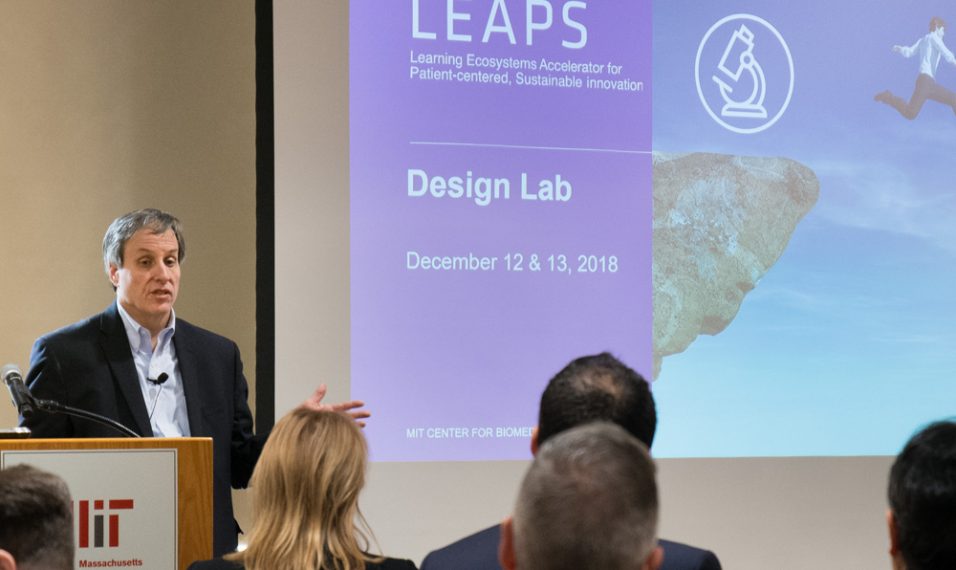CAMBRIDGE, MASSACHUSETTS — An international community of biomedical and healthcare innovation leaders gathered at MIT on December 12 and 13 for the second Design Lab for LEAPS (Learning Ecosystems Accelerator for Patient-centered, Sustainable Innovation). LEAPS aims to transform the benefits patients receive from medicines by improving clinical decisions with better evidence from advanced data analytics integrated with real-world study designs. LEAPS’s initial pilot project is focused on Rheumatoid Arthritis (RA) in Massachusetts (MA) and is anticipated to begin operations in 2020.
This Design Lab elucidated key questions, barriers, and enablers associated with improving our ability to get the right treatments to the right patients at the right time—a central goal in the RA MA pilot. Discussions highlighted that, while this capability is important for any disease within a value-based healthcare system, the stakes are particularly high in RA given that irreversible joint damage progresses when patients are on treatments that are not effective for them.
This safe haven, pre-competitive event provided an opportunity for key stakeholders (RA patient advocates, providers, payers, regulators, drug developers, public health officials, and academic researchers) to jointly design new capabilities to connect existing fragmented data and create new clinical evidence to improve decisions and outcomes for all. LEAPS innovations will apply platform strategies to transform the speed, scale, and quality of clinical evidence production that is “fit for purpose” for key decisions in a value-driven healthcare system.
LEAPS teams are already harnessing the Design Lab results to create two key deliverables by the end of 2019: a “Blueprint” for the implementation of the RA MA pilot, and a “Playbook” of generalizable principles and tools for broad dissemination and use by innovators in other disease areas and geographies.
A keynote Design Lab panel highlighted unique opportunities for collaborative action in Massachusetts. Ray Campbell, Executive Director of the Center for Health Information and Analysis (CHIA) and Laurance Stuntz, Director of the Massachusetts eHealth Institute (MeHI) at MassTech Collaborative, among others, described ways to approach the critical knowledge gaps in RA with existing data platforms. Sebastian Schneeweiss from Harvard Medical School and Partner’s Center for Integrated Healthcare Data Research, and Richard Platt from Harvard Medical School and Harvard Pilgrim Health Care Institute, shared strategies for integrating and analyzing data from electronic health records, insurance claims, and patient generated apps. And Sandy Pentland, Toshiba Professor of Media Arts & Sciences at MIT, described the role that blockchain technology can play in securely sharing aggregate data and findings while preserving patient and organizational privacy.
Dr. Gigi Hirsch, Executive Director of the MIT Center for Biomedical Innovation and the NEWDIGS Initiative that hosts the LEAPS Project, noted, “Rheumatoid Arthritis presents a profound initial opportunity for piloting LEAPS. Current knowledge gaps in the disease are harming patients and causing significant waste and inefficiency in the system. Massachusetts presents a perfect collaborative testbed environment for piloting a system that bridges the knowledge gaps, which is necessary for improving decisions for all stakeholders, and—most importantly—to improve the lives of patients.”
Shown in photo: Ray Campbell, Massachusetts Center for Health Information and Analysis
